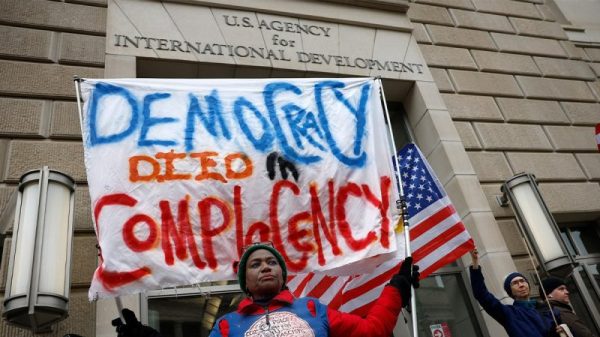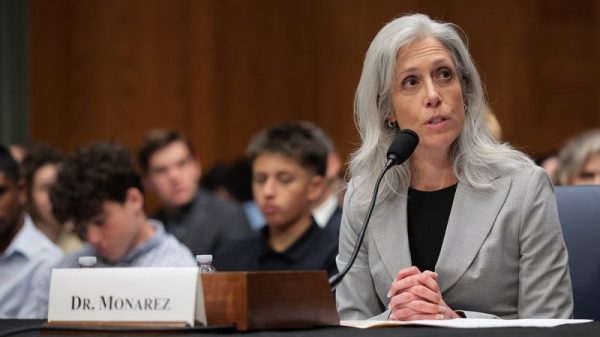
Chancellor Rachel Reeves is facing mounting pressure to outline major tax rises or spending cuts in her autumn Budget, after economists warned she will need to raise an additional £50 billion a year by 2029/30 to meet her own fiscal rules and stabilise the public finances.
In a stark warning, the National Institute of Economic and Social Research (NIESR) said Reeves’ carefully preserved £9.9 billion fiscal buffer—announced in March—has now been wiped out. The think-tank estimates a £41.2 billion budget deficit by the end of the decade, leaving a funding gap of £51 billion to be plugged each year if Reeves wants to maintain the same headroom.
The analysis means Reeves may be forced to impose some of the most significant tax increases in a generation—equivalent, NIESR said, to raising both the basic and higher rates of income tax by five percentage points.
“Fiddling at the edges won’t do the job,” warned Professor Stephen Millard, deputy director at NIESR.
“If the Chancellor wants to maintain even a wafer-thin buffer, she needs to consider sustained and moderate tax increases.”
The warning comes amid criticism of Labour’s fiscal planning after taking office last month. Millard said it was “disappointing” the party did not enter government with a more fully formed economic plan, despite its victory being widely anticipated.
“A lot of the problems Reeves is now facing could have been addressed early on, had Labour come in with a clear, costed roadmap,” he said.
Although Reeves implemented tax rises worth £40 billion in her last Budget, she has repeatedly declined to rule out further hikes in the upcoming autumn statement. However, Labour’s manifesto pledge to avoid raising income tax, National Insurance or VAT for working people significantly constrains her options.
Unions and Labour backbenchers have pushed for a wealth tax to plug the gap, and a further extension of the income tax threshold freeze—a move NIESR estimates could raise £8.2 billion. But both measures fall far short of the total required.
NIESR says Reeves now faces an “impossible trilemma”: trying to meet fiscal rules, stick to Labour’s spending commitments, and uphold the party’s tax pledges.
The Chancellor has committed to two rules:
• The stability rule, which states that day-to-day spending must be met through tax revenue,
• The investment rule, which requires net public debt to fall as a percentage of GDP.
NIESR’s analysis indicates she will breach the stability rule by 2029/30 without a significant fiscal overhaul.
The think-tank also highlighted the government’s failure to deliver planned welfare reforms, which has added £13.7 billion to the spending bill. In addition, the continuation of the winter fuel payment adds another £1.5 billion annually.
Weaker-than-expected output and employment compared to Office for Budget Responsibility (OBR) forecasts have created a £22.2 billion gap in projected revenue, while the think-tank identifies a £14.3 billion difference in expenditure expectations.
Taken together, this adds up to a £51 billion shortfall—a figure that includes the £9.9 billion of headroom Reeves had originally targeted.
NIESR also adjusted its economic forecasts, downgrading UK GDP growth for 2026 to 1.2%, down from 1.5%, while upgrading the 2025 forecast to 1.3%.
The outlook for inflation remains challenging. The think-tank expects Consumer Price Index (CPI) inflation to average 3.5% in 2025 and remain at 3% into mid-2026, above the Bank of England’s 2% target. Persistently high wage inflation and the inflationary impact of fiscal policies announced in the last Budget are the main drivers.
There is some good news for mortgage holders. NIESR forecasts the Bank of England will cut interest rates twice more this year, bringing the base rate down to 3.5% by early 2026. The first of those 0.25% reductions could come as soon as tomorrow, when the Bank publishes its next Monetary Policy Report.
In response to the report, a Treasury spokesperson reiterated the government’s focus on growing the economy as the best long-term route to fiscal stability.
“The best way to strengthen public finances is by growing the economy – which is our focus,” they said. “Thanks to our planning reforms, the OBR has said the economy is expected to grow by the end of the decade.”
Whether Reeves can maintain that growth while meeting her fiscal rules without breaking Labour’s tax promises is now the central question heading into what could be the most politically fraught Budget of her career.
Read more:
Rachel Reeves warned she must raise £50bn in taxes or cuts to avoid fiscal crisis





























